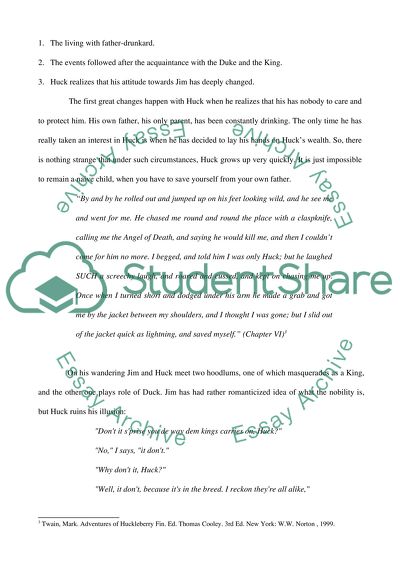Cite this document
(“Moral development of Huckleberry Finn in book Adventures of Huck Finn Essay”, n.d.)
Retrieved from https://studentshare.org/miscellaneous/1502013-moral-development-of-huckleberry-finn-in-book-adventures-of-huck-finn
Retrieved from https://studentshare.org/miscellaneous/1502013-moral-development-of-huckleberry-finn-in-book-adventures-of-huck-finn
(Moral Development of Huckleberry Finn in Book Adventures of Huck Finn Essay)
https://studentshare.org/miscellaneous/1502013-moral-development-of-huckleberry-finn-in-book-adventures-of-huck-finn.
https://studentshare.org/miscellaneous/1502013-moral-development-of-huckleberry-finn-in-book-adventures-of-huck-finn.
“Moral Development of Huckleberry Finn in Book Adventures of Huck Finn Essay”, n.d. https://studentshare.org/miscellaneous/1502013-moral-development-of-huckleberry-finn-in-book-adventures-of-huck-finn.


